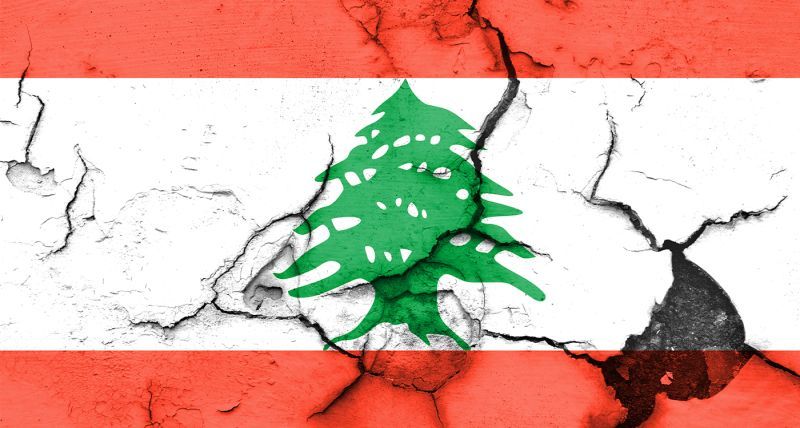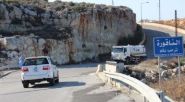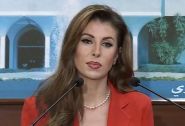
The future of the ceasefire between Hezbollah and Israel remains uncertain. Despite a flurry of diplomatic negotiations and recent statements by US Special Envoy Amos Hochstein calling for Israel’s withdrawal from southern Lebanon, progress toward lasting calm remains minimal. Both sides continue to accuse each other of repeated violations.
Israeli Defense Minister Israel Katz stated last Sunday, “If Hezbollah fighters do not withdraw north of the Litani River, there will be no agreement, and Israel will be forced to act unilaterally to ensure the safe return of northern Israel’s residents to their homes.” In response, Hezbollah’s Secretary-General, Naim Qassem, affirmed that he’s “ready to retaliate to Israeli violations.” He added, “The decision on how to respond, the methods, and the weapons to be used rests with the resistance command… We are not obligated to wait beyond the sixty days specified in the ceasefire agreement.”
The ceasefire agreement, which took effect on November 27, stipulates that the Lebanese Army forces (LAF) and UN peacekeepers must deploy in southern Lebanon, while the Israeli army is to withdraw from Lebanon within 60 days. The agreement also requires Hezbollah to pull back 30 kilometers from the Israeli border.
What is the current status of the agreement’s implementation? What will happen once the 60-day deadline passes? Could the ceasefire be extended?
In an interview with This is Beirut, retired General Khalil Helou emphasized that “the ceasefire agreement has yet to be fully implemented. On the Lebanese side, the army’s deployment in southern Lebanon is slow and limited, while Hezbollah has not withdrawn north of the Litani, contrary to its commitments through its political representatives.” Helou also noted that “the Israeli army has repeatedly violated the agreement, by targeting positions, individuals and border crossings between Lebanon and Syria.”
A set of US “guarantees,” presented to Israel alongside the agreement between Beirut and Tel Aviv, “recognizes Israel’s right to respond to threats from Lebanese territory, in accordance with international law.”
Hezbollah seems committed to maintaining the status quo. Helou suggested that the group “has refrained from withdrawing due to both internal and regional political considerations.” He added, “Although the rhetoric of ‘resistance’ and victory continues, Hezbollah can no longer rearm as easily as before. Moreover, it is reluctant to trigger another war with Israel, which would be more catastrophic for the group.” Helou also noted that “Israel has expanded its control over new strategic regions in Syria, particularly in the southern Anti-Lebanon mountain range, driven by both security concerns and expansionist motives.”
The future of the ceasefire is closely linked to broader regional developments. According to Helou, “a potential attack on Iran’s nuclear facilities could compel Hezbollah to retaliate against Israel using its remaining arsenal.” However, he emphasized that considerable uncertainty remains about the real intentions of Israeli, Iranian and American leaders.
A diplomatic source pointed out that “the ceasefire agreement specifies only a 60-day duration and does not include an automatic renewal.” The agreement is “a hybrid, ad hoc arrangement that is neither definitive nor legally binding,” the source told This is Beirut. Any modifications after January 27 will require fresh negotiations, likely mediated by the US and France. The source further explained that “the truce monitoring mechanism operates independently from UNIFIL, although it remains linked to UN Security Council Resolution 1701. The resolution does not provide for a direct relationship between UNIFIL and the monitoring mechanism.” It stressed the “importance of ensuring the comprehensive implementation of Resolution 1701,” particularly regarding the 13 contested points along the Lebanese-Israeli border.
In an exclusive interview with This is Beirut, legal expert and journalist Youssef Diab revealed that “(Israeli PM Benjamin) Netanyahu was given political approval by the United States to remain in southern Lebanon and even discussed establishing a buffer zone, which was not part of the official agreement.” Diab believes the ceasefire could be extended, but it would not be accepted by the Hezbollah/Amal duo, which would face significant challenges with their supporters, as 60 villages remain inaccessible due to Israeli restrictions. He cautioned that “an extension of the ceasefire without robust international guarantees could have negative repercussions for Lebanon.”
Diab also pointed out that while the agreement “recognizes Israel’s right to self-defense, an unofficial agreement was reportedly signed with Parliament Speaker Nabih Berri, granting Israel the authority to carry out airstrikes across Lebanon in response to security threats or Hezbollah rearmament.”
It is important to note that the US “guarantees" stipulate that “Israeli overflights of Lebanon will be carried out solely for intelligence, surveillance and reconnaissance purposes, and must be conducted as discreetly as possible and without breaking the sound barrier.”
Concluding his analysis, Diab asserted that “all scenarios remain possible unless the election of a president who is fully committed to implementing Resolution 1701.”




Comments